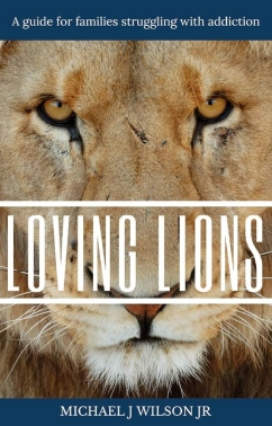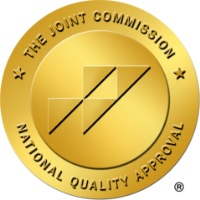Gambling addiction affects more than finances. It damages relationships, self-control, and emotional stability. Many people feel overwhelmed, frustrated, or even furious after losing money. These intense emotions can build up and cause serious damage over time. That’s why gambling sparks anger in so many cases. It fuels stress, guilt, and regret. Understanding the connection between gambling and anger is essential for effective treatment. When people ignore this link, recovery becomes harder. Anger can lead to isolation, outbursts, or risky behavior. But recognizing the signs helps people get the right help. Mental health treatment centers in Massachusetts offer support for those dealing with these emotional triggers. The sooner someone understands what’s happening, the better their chances of healing. Taking control starts with being honest about the emotional damage gambling can cause. Anger doesn’t need to take over your life.
Gambling Addiction and How It Affects Your Emotional State
A gambling addiction is a pattern of behavior that leads to repeated betting, even when it causes harm. It often begins with chasing wins and ends with deep regret. Over time, the emotional toll builds. People may feel shame, guilt, fear, and frustration. These emotions can quickly turn into rage. That’s why gambling sparks anger for so many people. It creates emotional highs and crushing lows. When losses pile up, people lash out at others or turn their anger inward. The result is emotional instability that affects work, home, and relationships.

How gambling addiction leads to anger issues is tied to control. The more people feel they’ve lost it, the more they act out. The saying that gambling addiction is more dangerous than ever is spreading around the news like wildfire, and there is a very big reason for that. It’s because the access has increased, and support often comes too late. Recognizing the emotional damage is the first step. Recovery works better when people understand what fuels the anger behind their addiction.
Why Does Gambling Addiction Fuel Anger?
Gambling triggers strong emotional responses, especially when losses pile up. Frustration builds fast when someone keeps chasing wins and keeps losing. That stress turns into anger. Many gamblers feel stuck in a loop. Hope, loss, regret, then rage. This emotional cycle wears people down. They lose control and react without thinking. That’s why gambling sparks anger so often. The brain expects a reward but gets disappointment. As a result, emotions spiral. People may snap at loved ones or turn to risky behavior. Why gambling triggers emotional outbursts and anger links back to this constant clash between expectation and reality. Over time, the anger becomes harder to manage.

That’s where anger management therapy online can help. It is available at all times, and you only need access to the internet. It offers tools to break this pattern before it damages everything. Gambling isn’t just about money. It affects mental health. Understanding the mental link can lead to better choices. Support and awareness change the outcome before things get worse.
The Impact of Gambling on Relationships and Mental Health
Gambling-related anger can tear relationships apart. Family members feel blamed or ignored. Friends, stop checking in. Colleagues lose trust. The constant mood swings make everyday life tense. People walk on eggshells. This behavior pushes others away fast. That’s why gambling sparks anger that doesn’t stay private. It spreads. The emotional damage cuts deep. Shame, regret, and fear grow stronger with each loss. Over time, this stress takes a toll on mental health. People may sink into depression or develop anxiety. Some turn to alcohol or other harmful habits. The effects of gambling on emotional health and anger don’t stop at the casino. They follow people home, to work, and into every relationship. Unchecked anger makes healing harder, especially for those who are going through treatment for gambling addiction. It keeps people stuck in a cycle that feels impossible to break. But with the right help, change is possible. Honest conversations and real support can rebuild trust and emotional control.
Identifying the signs of anger linked to gambling
Recognizing anger tied to gambling can prevent deeper problems. Many people ignore early warnings until the damage spreads. Learning what to watch for helps with managing anger caused by gambling behavior. Anger doesn’t always show up loudly. Sometimes, it hides in habits and mood swings. If these patterns show up often, take them seriously. They could be signs you need anger management. Common warning signs include:
- Snapping at friends or family after losing money
- Feeling irritated over small things unrelated to gambling
- Struggling to control aggressive thoughts or actions
- Avoiding people to hide your mood or behavior
- Obsessing over past losses and blaming others
- Regretting what you say during arguments
- Feeling calm only while gambling, then crashing emotionally after
These signs point to emotional stress that’s harder to control over time. Pay attention early. Support and therapy can help stop anger from controlling your decisions and damaging your life.
How Therapy and Treatment Can Help Manage Gambling-Related Anger
Therapy can help people understand why gambling sparks anger and how to control it. Cognitive Behavioral Therapy (CBT) teaches new ways to react under stress. It helps people break harmful thought patterns tied to gambling and anger. Anger management therapy focuses on triggers and emotional control. Breathing exercises, journaling, and structured routines are common tools.
Emotional regulation therapy teaches how to respond instead of react. These methods work best when used together. Solutions for dealing with anger from gambling addiction often include both one-on-one sessions and support groups. Seeking help is not a sign of failure. It’s a step toward better control and peace of mind. Many people don’t realize how deep the problem goes until relationships or work suffer. Getting treatment early can prevent long-term damage. Talking to a trained therapist gives people the structure and tools they need to take charge again.

Strategies for Taking Control of Anger and Gambling
Taking control of gambling-related anger starts with small steps. First, pause before reacting. Breathe. Let your body calm down. Use mindfulness daily to stay aware of emotional triggers. Set clear limits for gambling, including time and money. Stick to them. Talk to someone you trust or join a support group. Sharing helps you feel less alone. Replace gambling with healthier habits like exercise, reading, or calling a friend.
Build a routine that reduces stress. Understanding the connection between gambling and anger is key. It shows why gambling sparks anger and how fast things can spiral. Early action matters. Once you recognize the pattern, you can change it. Don’t wait for a major emotional outburst to make a change. Simple habits, done often, help you feel more in control. Staying aware of your reactions gives you the power to stop the cycle before it wrecks your peace, your focus, and your relationships.
Reach Out, Ask for Help, You’re Not Alone!
Recognizing the emotional triggers tied to gambling addiction is the first step toward real change. Anger doesn’t come out of nowhere. It builds with stress, regret, and loss. Ignoring it only makes things worse. The longer you wait, the harder it will be to fix the damage. If you keep asking yourself why gambling sparks anger, it’s time to look deeper. You don’t have to deal with it alone. Professional support can help you break the cycle, gain control, and protect your relationships. Reach out to us at East Point Behavioral Health and take that first step toward real recovery today.







